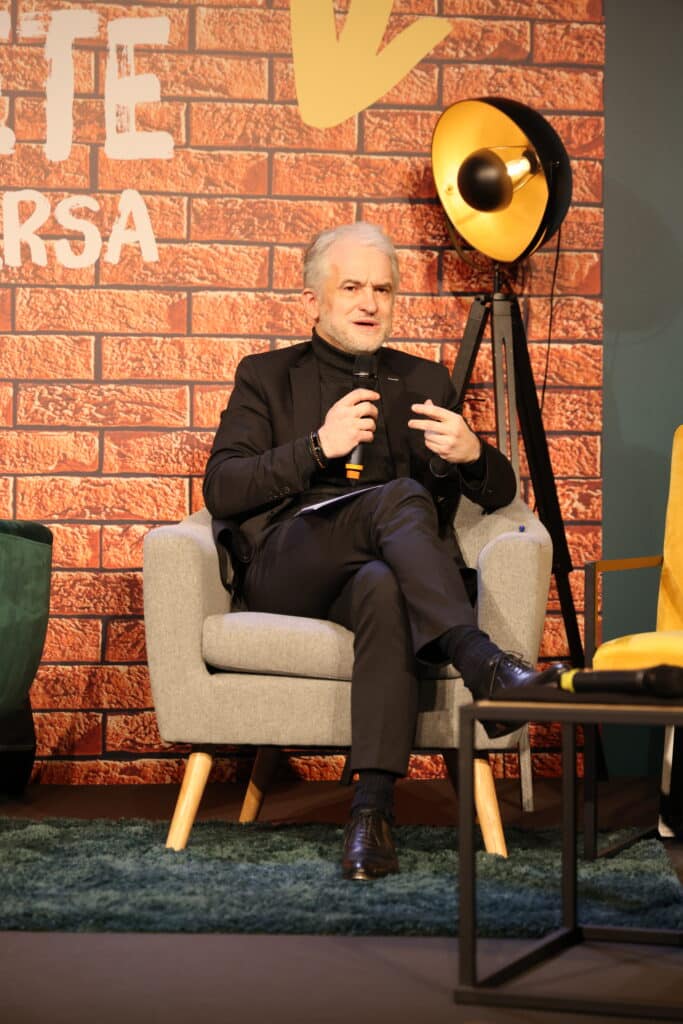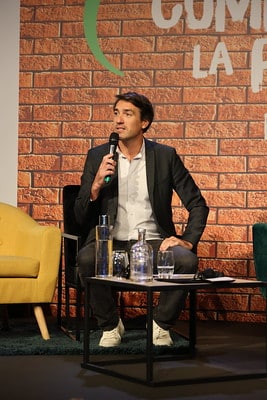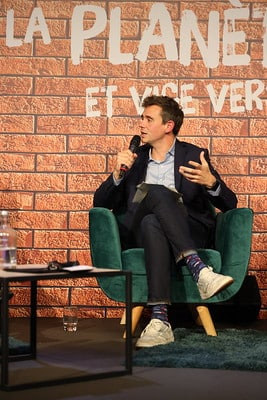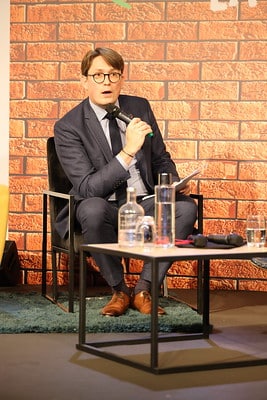The case of Crepes & Waffles, with Felipe Macia Fernandez in Colombia
Felipe Macia Fernandez is the son of the founders the biggest Colombian food-chain restaurant. The combination of quality foods and low-price meals was a leading factor in his commercial success. Today, the second generation is taking over the company, facing contemporary challenges. The sustainable development director gave a conference about his projects and ambitions for the future of his work with local Colombian communities.
How did you make it to director of sustainable development of Crepes and Waffles?
F.M: I started studying economics in Colombia. But then, as I started studying, they told me « The main problem in economy is that human needs are unlimited, but resources are limited ». Then I thought there was something wrong. Why did you invent the system if that is the problem? Our system destroys everything and promotes a lot of consumption.
I ended up moving on from economics and went to Australia. I studied sustainable development and business. I was there for two years and a half. When I finished and graduated, I went to a farm and lived in a little trailer. I started working and studying generative agriculture, ecological agriculture.
I was farming for four months, understanding how soil works, how you could do ecological designs in farms. Then I went back to Colombia because agriculture is a big opportunity for Colombia to solve environmental and social problems. I worked for communities there for two and a half years, doing conservation models and production of food.
Three years ago, I joined « Crepes and Waffles » to put what I have learned in place, this time in a big company.
Where you inspired by anyone while working towards sustainable development?
F.M.: Well there are many people. last week, I was with Vandana Shiva in London. She is very inspiring. I think she has a very nice way of putting all these subjects in practice.
Who else? Well, there is a farmer, he is Swiss but lives in Brazil. He has developed a syntrophic agriculture. It is a big forest that produces food. When we see it from above, you think that it is a forest but it is actually food producing. That is very inspiring.
How do you think Crepes and Waffles creates economic value?
F.M.: Well, I think that we are a large company, the largest restaurant chain in Colombia. We have five thousand employees. We have a very successful business in the industry. We propose good food that looks like art or beautiful architecture, at a reasonable price for everyone. Everyone in Colombia can access places and products. We do not have a limited target. We also create jobs.
How do you think Crepes and Waffles creates social value?
F.M.: We have two ways of creating social value in « Crepes and Waffles ». First, by working with women that are head of households and come from low income communities in Colombia. When we hire our collaborators, they can access education, health and housing. The company supports them. 90% of our employees are women and 75% are head of households: they are the only economic support of their family. We do a lot of personal flourishing within the company.
We also work with farmers in Colombia. It is the first time they sell on the market for some of them. We work directly to offer them a fair price for their products: we work with them to promote ecological agriculture, generate ecosystems where they live and promote local development.
You recently joined BCtA (Business Called to Action), in what does your work consists with them?
F.M.: We are part with Business Called to Action, we joined last year. We are with B-Corp as well. Our project is the one in Monte Santa Maria. It is a project in the North of Colombia, it is aimed at protecting dry tropical forest which is the most threatened ecosystem in Colombia. We are working with around a hundred farmers there. They are building ecological corridors to regenerate this ecosystem. We are buying their products which is mainly bean and honey and now we are going to buy four more products from them. It solves climat change, it is a response to biodiversity and it is inclusive with communities.
This is our project with Business Called to Action: sustainability goals.
What are your hopes for the future of Crepes and Waffles and Colombia?
F.M.: For the future of Crepes and Waffles, the hope is that we keep on being authentic and original in the way we do business; that we preserve our values, despite the fact that we are growing; that we keep on riding the road to grow all this project, becoming an example and do things differently than other businesses.
For Colombia, my hope is that it preserves its essence and its nature and that people who live there acknowledge that we live in a very privileged country, nature-wise. That they have a chance to achieve well-being without having to destroy all the natural wealth that we have.
Estelle Kammerer



